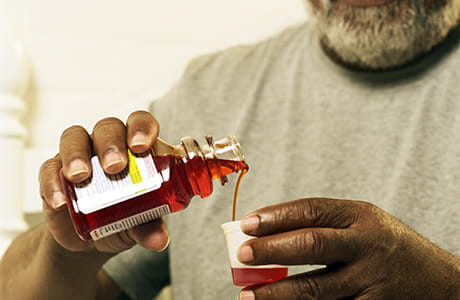What’s causing that fluttering in your chest?
Heart palpitations are not uncommon and could be caused by anxiety, too much coffee, dehydration or a primary rhythm disorder.
Do scary movies make your heart skip a beat? Or maybe you notice a flutter in your chest just as you’re settling down for the night.
“When your heart beats rapidly or irregularly for a few seconds, you might feel this odd sensation in your chest, neck or throat,” says Pugazhendhi Vijayaraman, MD, a Geisinger cardiac electrophysiologist.
This fleeting feeling is a called a heart palpitation. Most of the time, these aren’t cause for concern, but it’s always best to work with your doctor to eliminate potential heart conditions.
What causes heart palpitations?
Lots of things can cause an occasional flutter, so it can be hard to pinpoint the trigger at first.
Some common causes of heart palpitations include:
- Anxiety
- Dehydration
- Strenuous exercise
- Caffeine
- Nicotine
- Alcohol
- Some cold and cough medications
- Asthma medications
- Pregnancy
Anxiety is a common cause of palpitations, and you’ll probably notice the feeling right before a nerve-wracking event like a first date or big presentation at work. This side effect might be accompanied by an upset stomach or sweaty palms.
But what about when the flutter happens with no obvious trigger, like when you’re about to fall asleep?
"People often notice heart palpitations at night because there are fewer distractions competing for their attention,” explains Dr. Vijayaraman. “They might be happening throughout the day, but you’re too busy to notice.”
Preventing palpitations
An occasional fluttering in your chest usually resolves on its own or with simple lifestyle changes.
Dr. Vijayaraman offers the following tips to deal with heart palpitations:
- Incorporate relaxation techniques like meditation, yoga or deep breathing.
- Make sure you’re drinking enough water throughout the day.
- Cut back on or eliminate stimulants like caffeine and nicotine.
- Lower your alcohol intake.
- Ask your doctor or pharmacist if any of your medications might cause palpitations.
Could fluttering in your chest be AFib?
If the feeling lasts more than a few seconds at a time, increases in frequency, or if you know you have an existing heart condition, it could be atrial fibrillation, or AFib.
“During atrial fibrillation, upper heart chambers called atria flutter or fibrillate, meaning they beat at very fast rates,” explains Dr. Vijayaraman. “This results in irregular beating of the lower chambers called the ventricles.”
Other symptoms of AFib include:
- Dizziness
- Shortness of breath
- Weakness or general fatigue
- Chest pain
For some people, AFib lasts a few days at a time and their heartbeat returns to normal. For others, AFib can last longer or become chronic. Whether the flutters are short-lived or become permanent, AFib increases the risk of stroke and heart failure.
“Atrial fibrillation results in weak contractions of the upper chambers and increases the chance for blood clot formations in the heart and the risk of stroke,” says Dr. Vijayaraman. “Patients with AFib are five times more likely to have a stroke than those without it.”
It’s also important to note that some people who have AFib don’t have heart flutters or other symptoms at all.
“Occasionally, a patient will be diagnosed with AFib during a routine checkup,” notes Dr. Vijayaraman. “That’s why it’s so important to see your doctor regularly, especially as you age.”
If you’re older than 65 and have health conditions like high blood pressure, diabetes, heart disease or are overweight, you may be at increased risk for AFib. Talk to your doctor about ways to monitor your heart health over time. For example, many wearable fitness trackers or smart watches can track your heart rate and even record electrocardiogram results directly to your phone.
When to see a doctor
Talk to your doctor if you notice your heart fluttering more frequently or other signs like fainting, shortness of breath or lightheadedness.
“They can monitor your heartbeat, conduct tests like an electrocardiogram or have you wear a heart monitor for a brief time,” says Dr. Vijayaraman. “Understanding your family health history and any health conditions can also help your doctor accurately diagnose your irregular heartbeat.”
So, next time your heart skips a beat, take notice. Whether it’s from that extra shot of espresso or first-date jitters, knowing the cause can help give you peace of mind.
Next steps:
What is a normal heart rate? Here's how to measure yours.
Learn more about heart care at Geisinger
6 heart symptoms you shouldn’t ignore





